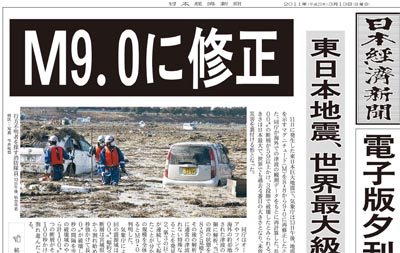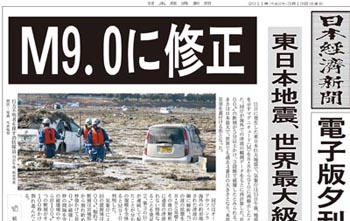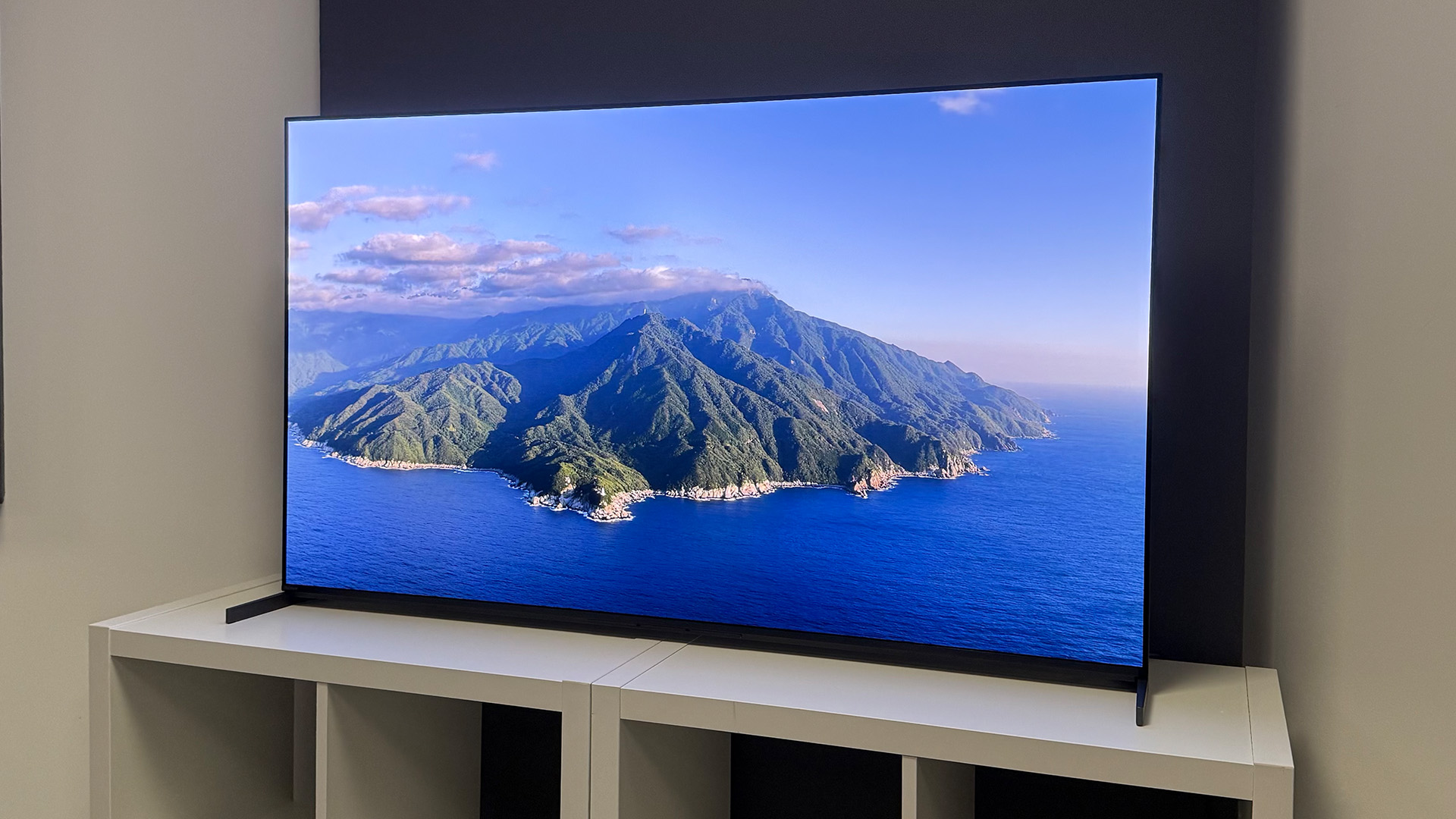UPDATED: JAPAN: Earthquake and its aftermath causes damage, shutdowns at major consumer electronics companies
Several plants affected, factories across Japan closed down to allow staff to check on welfare of relatives; Panasonic donates cash and supplies to relief effort


UPDATE: More news in from Japan about the effect of last Friday's earthquake and tsunami on consumer electronics companies.
Toshiba has announced that due to damage, it has been forced to close down an LCD production facility near Tokyo for a month. It has also announced a donation of Y500m (£4m) to the relief effort, and will be taken measures to save energy at its facilities in Japan.
Hitachi has also announced that it had suspended operations at some of its facilities due to damage sustained, and that inspections are underway at a number of plants.
The company also released information that a number of its engineers have been sent to work with government and TEPCO staff, and that it has established a 24-hour emergency response centre to assist with the ongiong problems at the Fukushima Daiichi nuclear power plant.
Meanwhile Denon/Marantz parent company D&M Holdings has said that all its staff in Japan are safe, but that some damage was sustained to both its Kawasaki office building and its manufacturing facility at Shirakawa.
D&M European President Terry O'Connell says that the office building reopened on Monday, but that work is ongoing at Shirakawa 'to obtain a more complete picture of the damage, put response plans in place and have physical inspections conducted to verify the facility can be re-opened safely.
She added, 'The Shirakawa area is experiencing significant infrastructure challenges, including the shutdown of major highways, bullet train service, water supply and potential power disruptions.
The latest hi-fi, home cinema and tech news, reviews, buying advice and deals, direct to your inbox.
'The safety and well-being of our employees is our top priority. As needed, we will assist our employees with any hardships they are facing at home.'
Posted 13.03.11 With the death-toll rising from Friday's massive earthquake off the coast of Japan, and with thousands of people still reported missing, leading companies are starting to count the cost of the disaster.
Several factories in the regions closest to the quake and worst affected by the tsunami have been damaged, but there have so far been only injuries reported at those plants.
However, a large number of manufacturing facilities across Japan have been halted temporarily to allow staff time to ascertain the circumstances of friends and family in the areas most affected.
And with the Japanese government announcing plans to ration electricity supply via a series of rolling power cuts, starting tomorrow and potentially continuing until at least the end of next month, it's likely production will be affected across much of Japan's industry for a some time.
The government is also asking Japanese people not to go to work tomorrow if possible, to reduce the pressure on those trains and stations operating.
As a direct result of the earthquake, which Japanese sources are now rating as a magnitude 9.0 on the international scale and which is still causing powerful aftershocks, several workers were injured by falling ceilings and walls at Panasonic plants in Miyagi and Fukushima prefectures.
The factories affected make products including digital cameras, audio equipment and components.
The company says supply and distribution chains are also disrupted, and has announced it's donating both cash and equipment to the disaster relief effort, as well as taking measures to reduce its power consumption.
Panasonic will donate Y300m (around £2.3m) to the recovery, as well as 10,000 radios, a similar number of lamps and 50,000 batteries. It will also be turning off all outdoor signage, and 'refraining from using electricity at all applicable facilities'.
Sony has announced a similar donation: a Y300m donation from the company will be supplemented by donations from company employees worldwide, which the company will match.
In addition, it will donate 30,000 radios to assist the relief of earthquake victims, and Sony says it will 'prepare further product donations going forward, taking into account the local needs.
'The Tohoku region is historically important for Sony, with a high concentration of manufacturing sites, and many employees and their families have also been affected by these devastating events.'
Sony has also stopped operations at six electronics plants in Fukushima and Miyazaki, and reports that one of its factories in Miyagi prefecture was flooded by the tsunami waters.
The ground floor of the facility, which makes magnetic tape and Blu-ray discs, was swamped, and around 1000 employees had to take refuge on a higher floor.
In addition, it has suspended work at two R&D centres, in support of the rolling power cuts now being implemented in Japan.
Toshiba says its LSI chip plant in Iwate prefecture has suspended operations, and Asahi Kasei has stopped a similar plant in Miyagi.
In common with NEC, which has four factories making electronic equipment in the Tohoku region, both companies are currently trying to assess the extent of any damage.
Meanwhile reports from South Korea say that companies there expect supplies of LCD panels and semiconductors to be affected by the disaster, due to the concentration of production of these items in the area worst affected.
Prices of both semiconductors and LCD panels are expected to rise, due to shortages, according to reports in the Korean business press, and Korean companies are expected to step in to make up some of the shortfalls.
However, even Korean manufacturing could be affected by the ongoing effects of the Japanese earthquake: some 25% of Korea's imports come from Japan, with electronic components accounting for a significant part of that total.
Follow whathifi.com on Twitter
Andrew has written about audio and video products for the past 20+ years, and been a consumer journalist for more than 30 years, starting his career on camera magazines. Andrew has contributed to titles including What Hi-Fi?, Gramophone, Jazzwise and Hi-Fi Critic, Hi-Fi News & Record Review and Hi-Fi Choice. I’ve also written for a number of non-specialist and overseas magazines.
